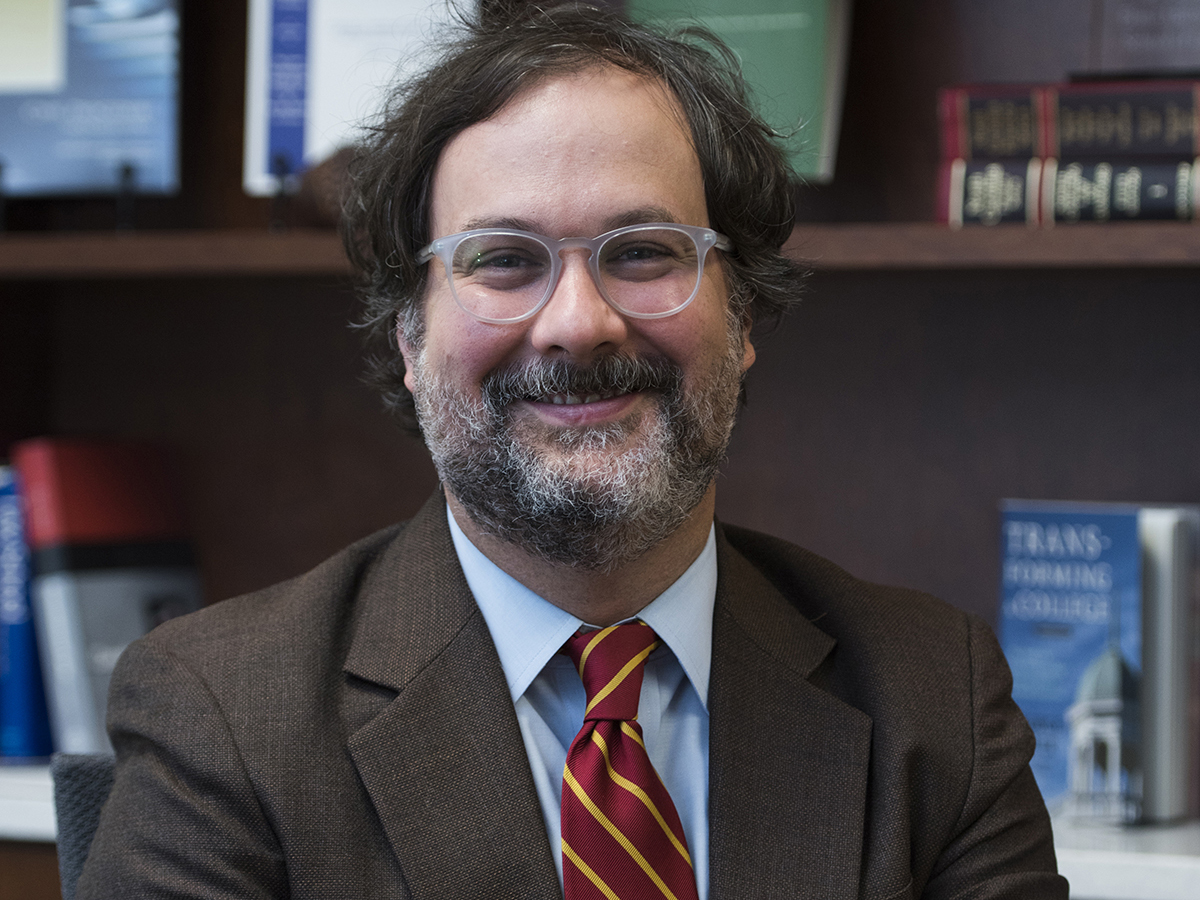Professor Enrique Armijo shared insights with the San Francisco station on a lawsuit filed against a cable news channel for making “demonstrably false” statements about Smartmatic, a company that builds electronic voting machines.

A San Francisco all-news radio station turned to an Elon Law professor for analysis of a lawsuit brought against a cable channel for its false statements and disparaging allegations about a company that manufactures voting machines.
Professor Enrique Armijo, a scholar of the First Amendment, spoke with KCBS Radio journalist Eric Thomas for a Sept. 26, 2024, report on Smartmatic’s defamation lawsuit against the right-wing Newsmax network.
In its coverage of the 2020 elections, Newsmax – as well as other conservative media platforms – made knowingly false statements and posed questions of whether Smartmatic’s voting machines changed votes to help President Joe Biden win the White House.
From the report “Defamation or opinion? Will the case against Newsmax make it to trial?”:
“The cable networks generally don’t like their internal communications being put out in the air. Smartmatic’s claims here really rely on internal communications by people in Newsmax that are basically saying ‘there is no truth to what we’re saying on the air’ in the form of emails, and in the form of confidential communications that Smartmatic has acquired during discovery. Because of that reason, because that laundry is so dirty, there’s a real motivation on the part of the cable companies to try to settle before we get to trial.”
Armijo’s prediction was correct. Within hours of the broadcast, it was announced that Newsmax had settled with Smartmatic.
About Professor Enrique Armijo
Enrique Armijo is a Fellow at George Washington University’s Institute for Data, Democracy & Politics, and an Affiliate Fellow of the Yale Law School Information Society Project and the University of North Carolina-Chapel Hill’s Center for Information, Technology, and Public Life.
He teaches and researches in the areas of the First Amendment, constitutional law, torts, administrative law, media and internet law, and international freedom of expression. His scholarship addresses the interaction between new technologies and free speech.


